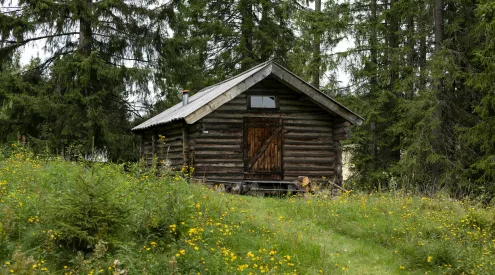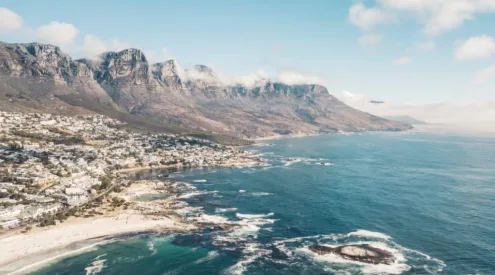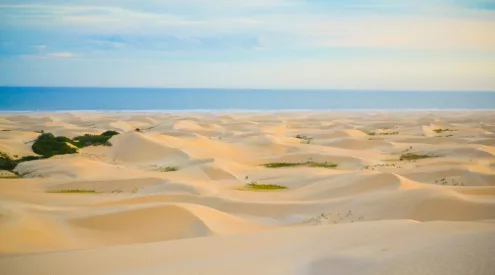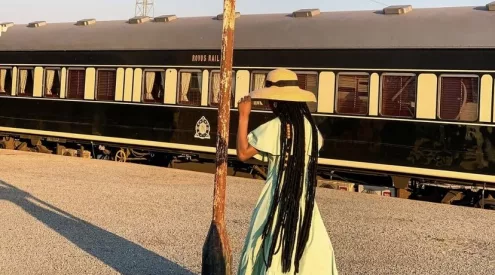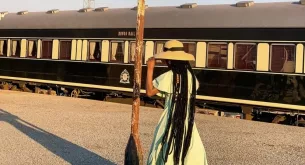Visiting Robben Island has always been on my list of things to do in Cape Town. Not only because I’m a South African and therefore have an understanding of the history of the island, but also because my father was an ex-political prisoner during Apartheid (although not on Robben Island). Visiting the island was something I felt obliged to do in an effort to understand both my family history and our countries. I’ve also always been curious to see Table Mountain and the city of Cape Town from the “˜other side’, and take in those magnificent views that make that picture perfect postcard.
When a warm winter’s day came around, my mother and I took the opportunity to take the ferry across to the island. As two of the only few South Africans, we joined in line with tourists, who were itching to get their fix of South Africa’s cultural history. Getting to the ferry departure point early is crucial as the seats fill up fast. This means some people have to stand and sit on the floor for the 45-minute journey. The boat ride is a calm, slow journey on a lovely calm day, but on blustery windy day it can get a bit nippy and wet, making some sort of waterproofing necessary (especially on the late afternoon ferry rides).
The trip is scheduled to leave three times a day (weather dependent) from the Nelson Mandela Gateway at the V&A Waterfront and in total is about 3½ half hours long. This includes a 45-minute ferry ride, a bus tour around the island, as well as a tour of the prison unit where Mandela was incarcerated. The bus tour was informative; if a bit rushed: get out, take photo, get back in bus, get out, take photo, get back in bus. However, it was very moving to visit the cell where Robert Sobukwe was kept in isolation for six years. Letters between him and his wife are on display and you can’t help feeling a chill run down your spine when you see the room his family stayed in when they came in to visit. We also saw the limestone quarry where many political prisoners were forced to do hard manual labour for hours on end. The exposure to the quarry led to many prisoners becoming blind during their time on the island.
After the bus tour around the island we visited the infamous maximum security prison block where Mandela and many other political prisoners were kept. This was the best part of the tour in my opinion as an ex-political prisoner took us around, making the tour feel much more personalised. He started off by showing us the “˜censor room’ where all mail was censored before being sent and received. He told us that a lot of the time entire letters would be censored, leaving only the date and address at the top. Spouses would even be sent fake letters that were written by prison officers asking for a divorce, meaning many people were cut off from their families. Next we visited the courtyard where Mandela managed to smuggle out some of the pages of his book “Long Walk to Freedom”. Seeing Mandela’s old cell was hard-hitting as you realise that this tiny space is where he spent 18 years of his life. That already is a large proportion of my life so far.
Ending off the tour, the guide emphasized the point that these tours are meant to demonstrate how far we as South Africans have come and not merely to share negative experiences. My mom and I left the island feeling a sense of sadness after seeing the conditions these prisoners and others had to deal with, but at the same time positive about the future and so thankful there are people like Mandela who fought for democracy.
Information about visiting Robben Island
Ferries to Robben Island depart at 9am, 11am and 1pm, (weather permitting), from Nelson Mandela Gateway, at the V&A Waterfront in Cape Town.
Adult tickets cost R220 and can be purchased online or call tel +27 21 409 5169.
Photos by Justin Fox


